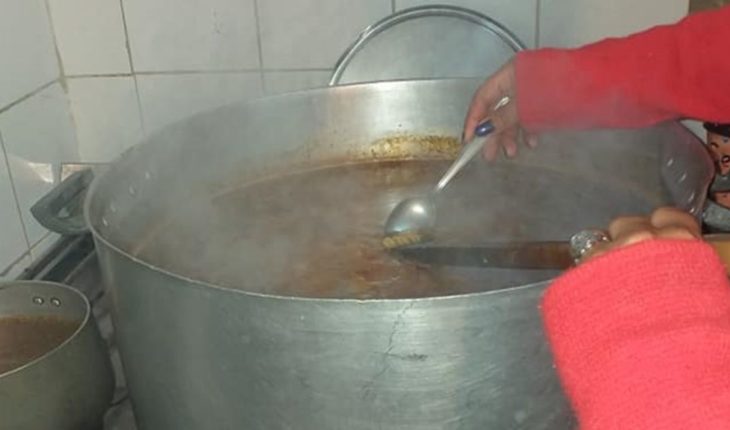In the face of the coronavirus pandemic, health professionals and the Government of the Nation recommended social estrangement and quarantine as forms of prevention and care. Although it is certainly the right thing to do and should be implemented everywhere, for many people it is not so easy, especially for the most vulnerable spaces in society where the crisis hits most intensely.
Such is the case of canteens, where families, fathers, mothers, adults and boys gather to have a plate of food, to play, to learn, to be distracted and to talk to each other. The essence of the meetings lies in the union, in solidarity as a flag and in having a gesture of companionship. When reality strikes these places that work in basic needs to survive, how do they cope? How did they have to arrange so they could continue with the pots and dishes for the neighborhood? To find out, Filo.News spoke with Chascomús’ “Little to Little” community dining room and Lucia Rossi, Secretary of Culture of Tierra del Fuego, who told how their routines changed, how they talk about the subject with the little ones, how the subject circulates in the streets and more. How coronavirus is lived from the eaters
Photo: Facebook
According to data from the Ministry of Health and Social Development in 2019, there are around 1,270 community canteens and 19,036 school canteens across the country, and more than 3 million people attend. Graciela Valle, responsible for “Little by Poco”, says that Monday, Wednesday and Friday open the doors of the dining room, where they make pot food, provide workshops, snacks, donation of clothes. However, in the face of facts of public knowledge, they are temporarily suspended. “We’re less moms cooking, we try to do what we’re advised to do,” Valle says, who say they agree with quarantine. At the moment, in the neighborhood they do not know any cases of coronavirus, only dengue, although he explains that awareness is difficult.” It’s very difficult in the neighborhood for them to become aware of the gravity of these issues that we’re going through,” he says, adding: “There are disbelievers who say nothing happens, that it’s verse, and it’s a lie.”
For her part, Lucía Rossi, culture secretary of Tierra del Fuego, stresses that “it is essential to work on the prevention and promotion of health in the face of this pandemic”. In the province, he said, before the two cases in the province had been confirmed, large measures had already been implemented to prevent their spread. “From the pandemic the work intensified, because we organized crews to make deliveries to the homes, as well as worked on the standards that each school. It should be noted that it is attended to all levels and modalities,” he said. The measures they took in the face of the pandemic
Photo: Facebook
According to Valle, they had to take different measures to avoid contact. “We deliver food to more than 40 families. That’s almost 150 kids. When they get to pick up dinner, it comes in joins by join, and there’s a lady outside with gel alcohol. We’re cooking two or three moms,” he says. With regard to children, he confesses that they talk to them about it, although parents do not want them to play in the streets: “We also have a WhatsApp group, where we share important information.” On the other hand, as Rossi commented on his Twitter account, the Government implemented the delivery of a weekly food module, consisting of dry foods, fruits, vegetables, dairy, bread, chicken and meat, for each student who attends the school canteen.
“Around the pedagogical, from the province of Tierra del Fuego AIAS, the Ministry presented the journey of pedagogical continuity and the digital platform that the educational community of the province will be able to access from this week,” he said. Because collective ties will be more important than ever, like thinking about the least of them and those who need the most resources to deal with this pandemic. In this note:
#Coronavirus
Quarantine
Dining rooms





